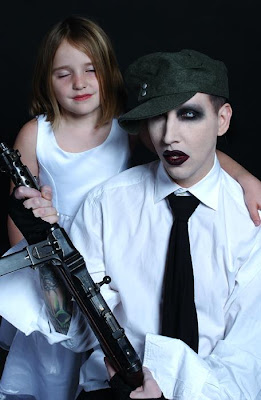
In this post I will be examining how new media such as Twitter and Wikipedia play a role in the way spree murder tragedies are covered by the mass media. In the case of the Virginia Tech shooting, there were a number of on-site reports being spread via twitter, feeding and bolstering the coverage by international broadcast news associations. Cell phone photographs and videos served to feed the public’s interest in the carnage that was unfolding on campus, every minute a new terrifying image or twitter update chilling them to the bone. 24 hour broadcasts became satiated with these images and reports, the mass media attempting to milk the tragic story for all it’s worth. These tactics are not just exploitative, but prove to cause a number of copy-cat murder cases within the coming weeks and months.
Charlie Booker addressed the issue on his Newswipe broadcast, highlighting the way nonstop media coverage of the issue serves no purpose but to satisfy the public’s interest in being entertained by the news. The video shows a BBC interview with Dr. Park Dietz, a forensic psychologist, who maps out the problems with the media’s coverage of the events. Some of the issues include plastering news broadcasts with images of the killer and giving body counts, which only serve to portray the killer as a sort of anti-hero.

Mass media often attempts to shift the focus from those who were murdered onto the murderer’s reason for committing the crime. Many reports seek to delve deep into the killer’s psyche in an attempt to pinpoint the factors that are to blame. One example of this would be the Columbine massacres, where media focused largely on the external influences that would have caused the killers to go on their murderous rampage. Michael Moore addresses this in his documentary Bowling for Columbine.

“Presumably he wanted to make a name for himself, which is why I won’t identify him. His name deserves to be forgotten. Discarded. Deleted. Labels like “madman”, “monster”, or “maniac” won’t do, either. There’s a perverse glorification in terms like that. If the media’s going to call him anything, it should call him pathetic; a nothing.”
– Charlie Booker on the Oslo bomber
